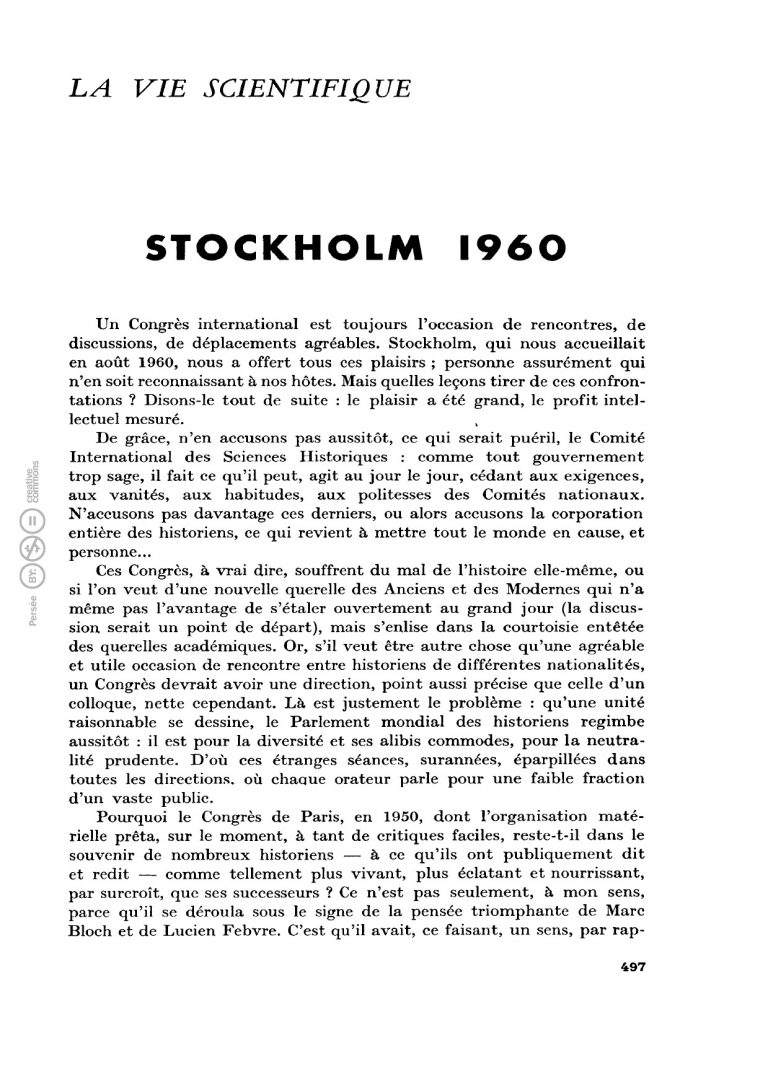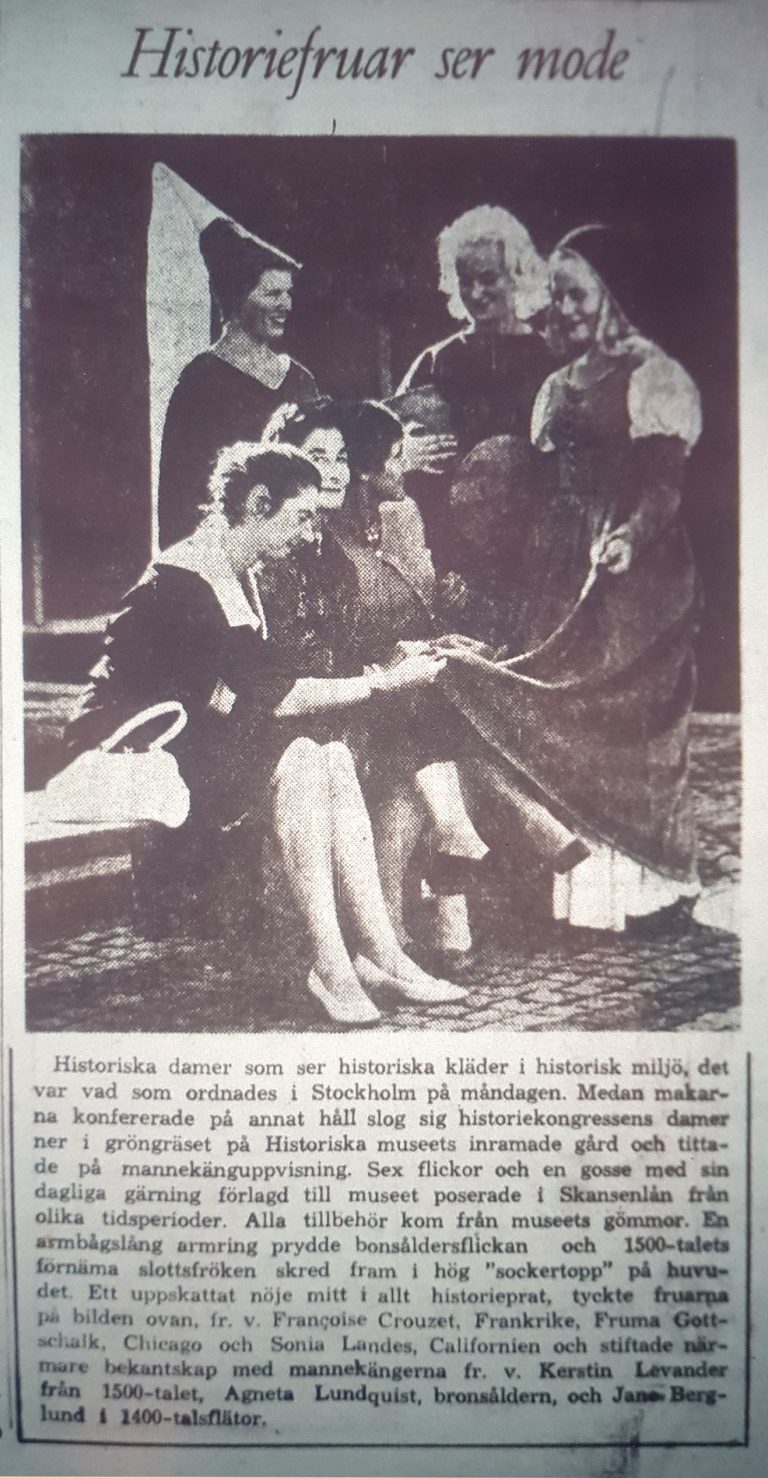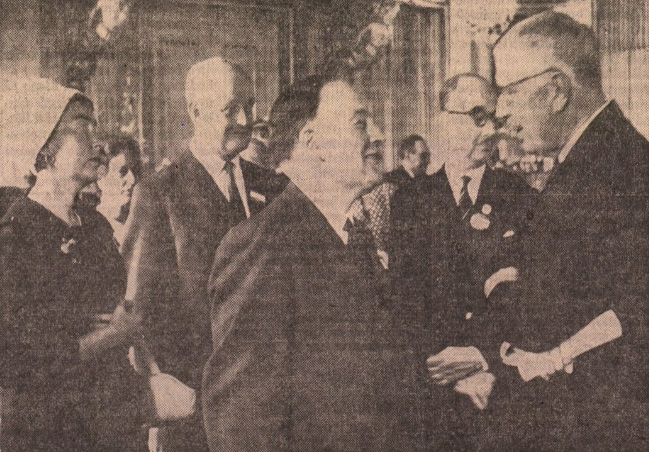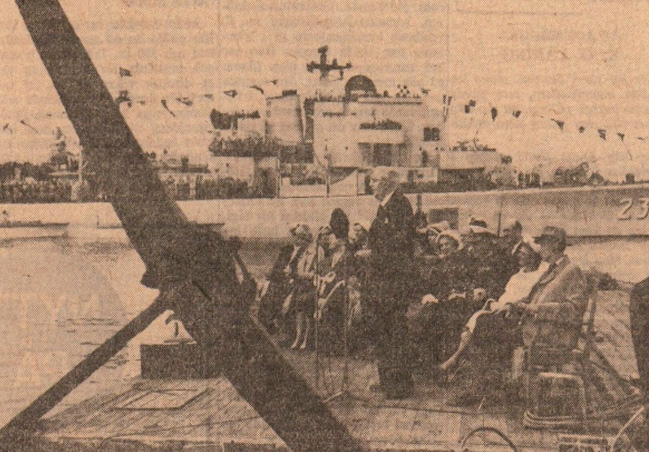The 11th International Congress of Historical Sciences took place in Stockholm on 21-28 August 1960. The ideological atmosphere of the event set in neutral Sweden during the Cold War period was largely influenced by growing international tensions in Europe and beyond. The advantages and disadvantages of Marxism in its various forms were at the heart of the debate, as was the more general question of structural history and historical writing methods derived from the tradition of historicism.
The Congress was attended by slightly more than 2,000 scholars (including accompanying persons). Attendance was about the same as in Rome five years earlier. Most continents had their representatives – from Cyprus and Morocco to Indonesia and Mongolia. There were no representatives of China and sub-Saharan Africa. Historians from Europe and North America dominated, which was reflected in the languages used during the session; preference was given to English, French and German.
Torvald T:son Höjer, professor of Stockholm University, was the principal organiser of the Congress. Among his collaborators were e.g. Sir Charles Webster, former President of the British Academy, and Hans Kohn from the City College of New York. They tried to protect the academic integrity of the Congress against “partisan” ideological attacks, but they were only partially successful. Many participants complained about controversial speeches and unscientific arguments.
One of them was Sten Carlsson, a professor of history at Uppsala University. In a comprehensive report in the daily Svenska Dagbladet (3 September 1960) he wrote how Peter Laslett, Werner Conze, Halvdan Koht, and Hans Rothfels tried to view the Marxist interpretation of history from a certain perspective yet were censured by the orthodox supporters of Marxism from Eastern Europe. At the same time, according to Carlsson, unlike during the 1955 Congress, historians from the Eastern Bloc countries delivered a number of “sophisticated” papers. He highlighted in particular the contribution of Władysław Czapliński from Poland and of Arkadiy Lavrovich Sidorov from the Soviet Union. Despite ideological conflicts which curbed intellectual debate, Carlsson, himself no communist, was optimistic about the development of historiography in Eastern Europe.
Bibliography:
- 11. congres international des sciences historiques, Stockholm, 21-28 aout 1960, Stockholm 1960
- 11e congrés international des sciences historiques: rapports, vol. 1-5, Stockholm 1960
- Actes du congres. XIe Congres international des sciences historiques, Stockholm, 21-28 aout 1960, Stockholm 1962
- F. Braudel, Stockholm 1960, «Annales. Économies, Sociétés, Civilisations», 16 année, No. 3, 1961, pp. 497-500
- K.D. Erdmann, Towards a Global Community of Historians. The International Historical Congresses and the International Committee of Historical Sciences. 1898-2000, ed. J. Kocka New York–Oxford 2005
- Mouvements ouvriers et dépression économique de 1929 a 1939: étude et rapports préparés pour le VIIe colloque international de la Commission internationale d’distoire, ed. D. Fauvel-Rouif, Assen 1966
- Résumés des communications. XIe Congres international des sciences historiques, Stockholm, 21-28 aout 1960, Stockholm 1960
Johan Östling







